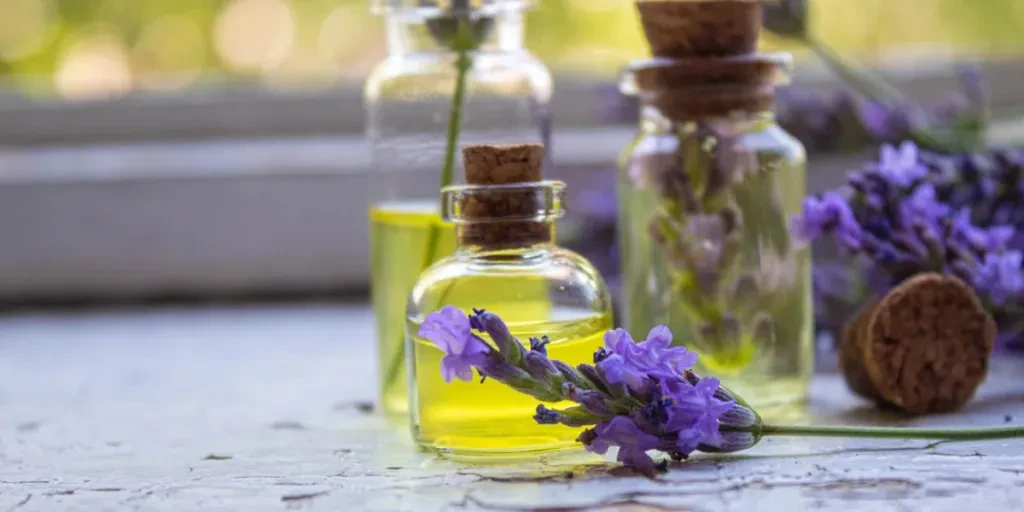The allure of herbal oils has captivated the beauty and personal care industry, with their natural and therapeutic properties driving a surge in popularity. As we step into 2025, the demand for these botanical elixirs continues to rise, fueled by a growing consumer preference for clean, green, and organic products. This guide delves into the factors propelling the herbal oil trend and offers insights into the market potential for business buyers.
Table of Contents:
– Understanding the Surge in Popularity of Herbal Oils
– Exploring Popular Types of Herbal Oils
– Addressing Consumer Pain Points with Herbal Oils
– Innovations and New Products in the Herbal Oil Market
– Key Considerations for Sourcing Herbal Oils
– Wrapping Up: The Future of Herbal Oils in Beauty and Personal Care
Understanding the Surge in Popularity of Herbal Oils
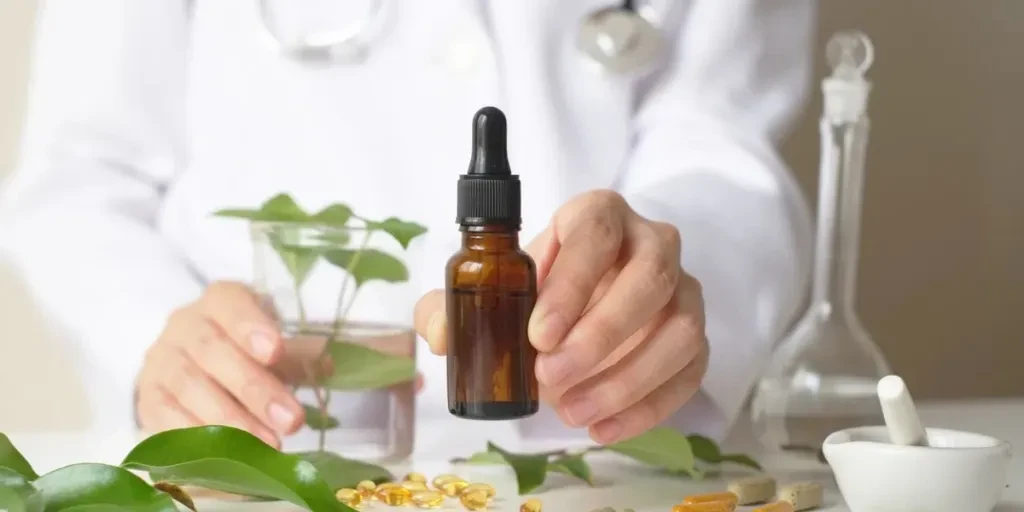
What Makes Herbal Oils a Trending Topic?
Herbal oils have become a cornerstone in the beauty and wellness sectors, thanks to their multifaceted benefits. These oils, derived from plants and herbs, are celebrated for their natural healing properties, making them a preferred choice for consumers seeking alternatives to synthetic products. The global herbal beauty products market, valued at USD 101.4 billion in 2022, is projected to grow at a CAGR of 5.1% through 2028, underscoring the robust demand for these natural solutions.
Social Media Buzz and Hashtags Driving Demand
The influence of social media cannot be overstated in the rise of herbal oils. Platforms like Instagram and TikTok are abuzz with hashtags such as #HerbalBeauty, #NaturalSkincare, and #GreenBeauty, which have collectively garnered millions of posts and views. Influencers and beauty enthusiasts are showcasing the efficacy of herbal oils in their skincare and haircare routines, driving consumer curiosity and adoption. This digital word-of-mouth has significantly amplified the visibility and desirability of herbal oils.
Aligning with Broader Wellness and Natural Beauty Trends
The shift towards holistic wellness and natural beauty is a significant driver of the herbal oil market. Consumers are increasingly aware of the potential risks associated with synthetic chemicals in traditional beauty products. This awareness has led to a preference for products that are not only effective but also align with personal values such as sustainability and cruelty-free practices. Herbal oils, with their natural origins and therapeutic benefits, perfectly align with these broader trends, making them a compelling choice for the modern consumer.
In conclusion, the herbal oil market is poised for continued growth in 2025, driven by a confluence of factors including social media influence, consumer demand for natural products, and alignment with wellness trends. Business buyers in the beauty and personal care industry should consider incorporating herbal oils into their product offerings to capitalize on this burgeoning market.
Exploring Popular Types of Herbal Oils
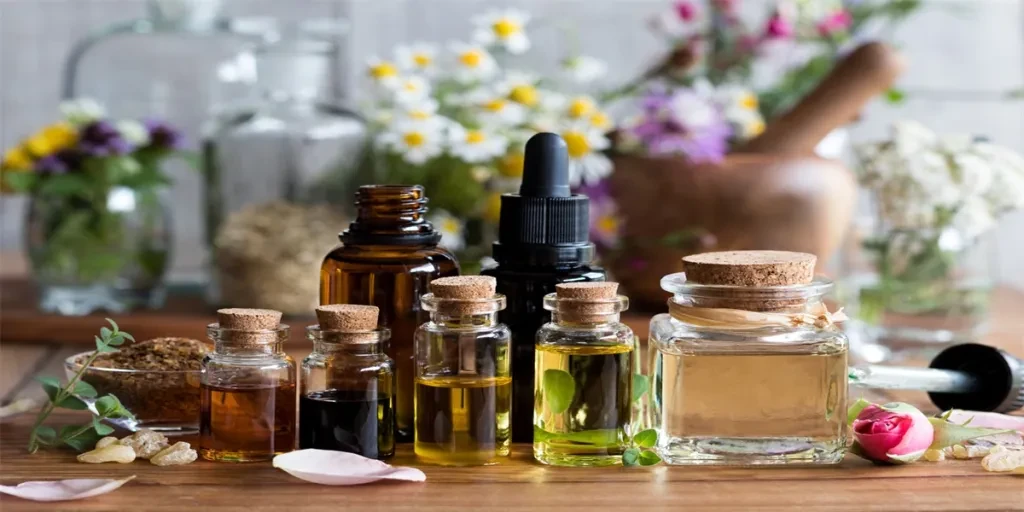
Essential Oils: Benefits and Consumer Preferences
Essential oils have become a cornerstone in the beauty and personal care industry, offering a myriad of benefits that cater to diverse consumer preferences. These oils, extracted from various plants, are renowned for their aromatic properties and therapeutic benefits. For instance, lavender oil is celebrated for its calming effects, making it a popular choice in products aimed at stress relief and relaxation. Similarly, tea tree oil is highly valued for its antibacterial and antifungal properties, making it a staple in skincare products targeting acne and other skin conditions.
Consumer preferences for essential oils are largely driven by their natural origins and the perceived health benefits. According to a professional report, the demand for essential oils has surged due to the growing preference for natural and organic beauty solutions. Brands like doTERRA have capitalized on this trend by offering high-quality, certified pure therapeutic grade oils that appeal to health-conscious consumers. The versatility of essential oils also plays a significant role in their popularity, as they can be used in various applications, from aromatherapy to topical treatments.
Carrier Oils: Versatility and Usage in Beauty Products
Carrier oils are another essential component in the beauty and personal care industry, known for their versatility and wide range of applications. These oils, such as jojoba, almond, and coconut oil, are primarily used to dilute essential oils and facilitate their application on the skin. However, their benefits extend far beyond this basic function. For instance, jojoba oil closely resembles the skin’s natural sebum, making it an excellent moisturizer that can balance oil production and improve skin texture.
The versatility of carrier oils makes them a valuable ingredient in various beauty products, including moisturizers, hair treatments, and massage oils. Brands like VAMA Wellness have leveraged the benefits of carrier oils by incorporating them into their pre-wash hair oils, which are designed to nourish and strengthen the hair and scalp. The use of carrier oils in beauty products is also driven by their ability to enhance the absorption of other active ingredients, making them a crucial component in formulations aimed at delivering targeted benefits.
Infused Oils: Unique Blends and Their Advantages
Infused oils represent a unique category within the herbal oil market, offering a blend of essential and carrier oils to deliver enhanced benefits. These oils are created by infusing herbs, flowers, or other botanicals into a carrier oil, resulting in a product that combines the properties of both the carrier oil and the infused botanicals. For example, calendula-infused oil is known for its soothing and anti-inflammatory properties, making it ideal for sensitive or irritated skin.
The advantages of infused oils lie in their ability to provide a synergistic effect, where the combined properties of the ingredients offer enhanced benefits. Brands like Junglo have introduced products like the Indian Harvest blend, which combines a dozen Ayurvedic nut, seed, and plant oils to offer comprehensive skincare benefits. This approach not only enhances the efficacy of the product but also appeals to consumers seeking holistic and natural beauty solutions.
Addressing Consumer Pain Points with Herbal Oils

Common Concerns: Allergies and Sensitivities
One of the primary concerns consumers have when it comes to herbal oils is the potential for allergies and sensitivities. Essential oils, in particular, can be potent and may cause adverse reactions in some individuals. For instance, while tea tree oil is effective against acne, it can cause irritation or allergic reactions in sensitive skin. Similarly, lavender oil, despite its calming properties, can trigger allergies in some users.
To address these concerns, it is crucial for brands to provide clear information about the potential allergens in their products. This includes listing all ingredients and offering guidance on conducting patch tests before full application. Brands like doTERRA emphasize the purity and testing of their oils, ensuring that consumers are aware of the quality and safety of the products they are using.
Solutions: Quality Assurance and Certifications
Quality assurance and certifications play a vital role in addressing consumer concerns about the safety and efficacy of herbal oils. Certifications such as Certified Pure Therapeutic Grade (CPTG) or organic certifications provide consumers with confidence in the product’s quality. These certifications indicate that the oils have been tested for purity, potency, and the absence of contaminants.
Brands that prioritize quality assurance and obtain relevant certifications can differentiate themselves in a competitive market. For example, the therapeutic hair oil market has seen significant growth due to the increasing demand for high-quality, certified products. Companies like Dabur Vatika have introduced certified herbal oils that cater to specific hair concerns, such as hair growth and scalp health, further enhancing consumer trust and loyalty.
Feedback: What Consumers Are Saying
Consumer feedback is invaluable in understanding the effectiveness and appeal of herbal oils. Positive reviews and testimonials can significantly influence purchasing decisions, as they provide real-world validation of the product’s benefits. For instance, consumers have praised VAMA Wellness’ 13 Blend Pre-Wash Hair Oil for its ability to nourish and strengthen hair, highlighting the effectiveness of its Ayurvedic formulation.
On the other hand, negative feedback can provide insights into areas for improvement. Brands that actively engage with their customers and address their concerns can build stronger relationships and enhance their product offerings. This approach not only improves customer satisfaction but also fosters brand loyalty and trust.
Innovations and New Products in the Herbal Oil Market
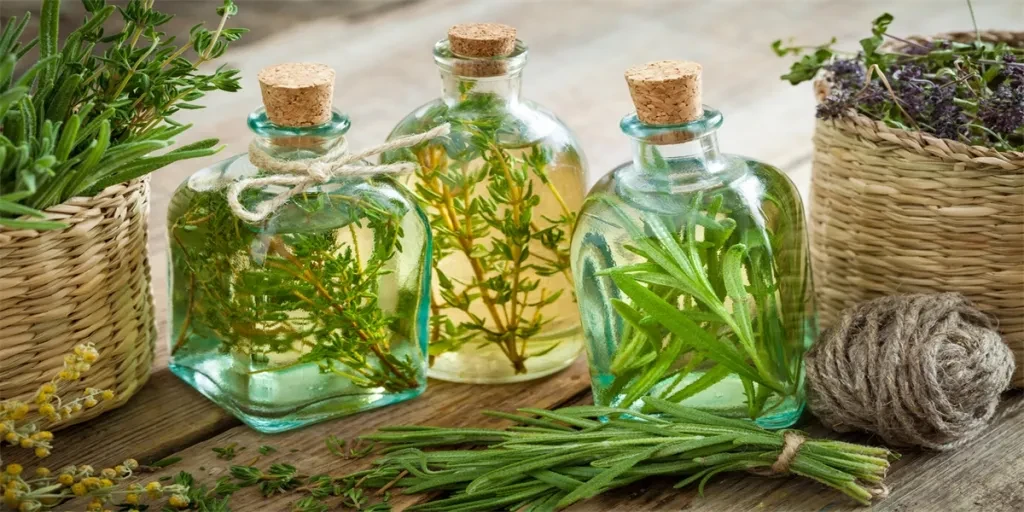
Cutting-Edge Formulations and Ingredients
The herbal oil market is continually evolving, with brands exploring innovative formulations and ingredients to meet consumer demands. One notable trend is the incorporation of advanced extraction techniques, such as cold-pressed methods, which preserve the integrity and potency of the oils. This approach ensures that the oils retain their beneficial properties, making them more effective in beauty and personal care products.
Brands are also experimenting with unique ingredient combinations to create multifunctional products. For example, Jod’s lactated cleansing oil in stick format combines cocoa butter and plant oils to offer moisturizing and softening properties. This innovative product caters to modern skincare needs, providing a convenient and effective solution for makeup removal and skin hydration.
Emerging Brands and Their Unique Offerings
The herbal oil market has seen the emergence of several new brands that are making a mark with their unique offerings. These brands are leveraging the growing consumer interest in natural and organic products to introduce innovative solutions. For instance, Briogeo, acquired by Wella Company, has gained popularity for its eco-conscious and natural hair care products. Their therapeutic hair oils, enriched with nourishing ingredients, cater to specific hair and scalp concerns, appealing to health-conscious consumers.
Another emerging brand, Nature Spell, offers a range of affordable, cruelty-free, and vegan haircare and skincare products. Their Rosemary Oil for Hair & Skin has received positive feedback for its ability to stimulate the scalp, encourage hair growth, and improve skin complexion. These brands are setting new standards in the herbal oil market, driving innovation and expanding consumer choices.
Future Trends: What to Watch For
Looking ahead, several trends are expected to shape the future of the herbal oil market. One significant trend is the growing demand for personalized beauty solutions. Brands are increasingly using technology to offer customized products that cater to individual skin and hair needs. This trend enhances consumer satisfaction and demonstrates a brand’s commitment to providing effective solutions.
Another trend to watch for is the emphasis on sustainability and ethical sourcing. Consumers are becoming more conscious of the environmental impact of their purchases, driving brands to adopt sustainable practices. This includes using eco-friendly packaging, supporting fair trade practices, and sourcing ingredients responsibly. Brands that prioritize sustainability are likely to resonate well with environmentally conscious consumers, further driving market growth.
Key Considerations for Sourcing Herbal Oils
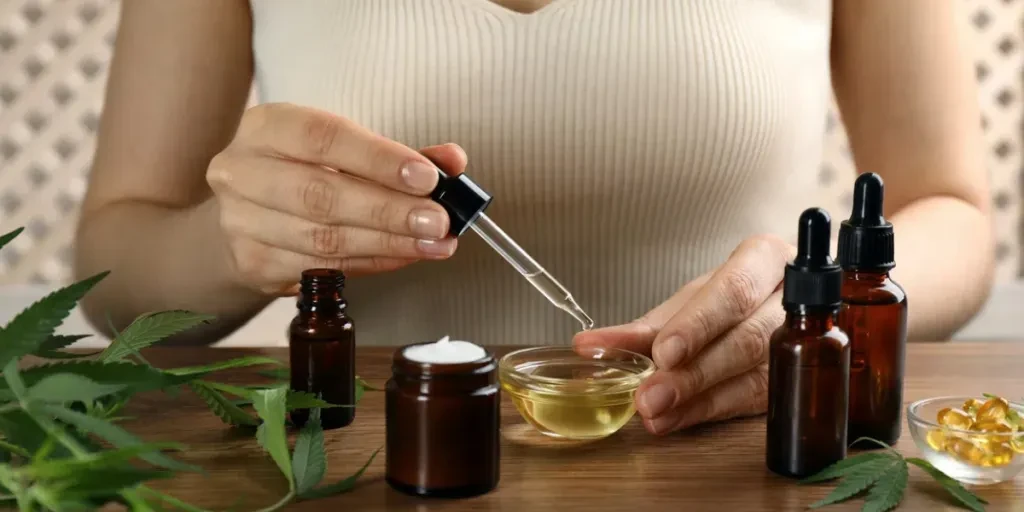
Quality and Purity: What to Look For
When sourcing herbal oils, quality and purity are paramount. Business buyers should prioritize oils that are free from contaminants and have been tested for potency and efficacy. This ensures that the oils deliver the desired benefits without causing adverse reactions. Brands like doTERRA and Dabur Vatika emphasize the importance of quality assurance and obtain relevant certifications to validate their products’ purity.
It is also essential to consider the extraction methods used. Cold-pressed oils, for example, retain more of their beneficial properties compared to those extracted using heat or chemicals. This makes them more effective in beauty and personal care products. Buyers should look for detailed information on the extraction methods and the source of the ingredients to ensure they are getting high-quality oils.
Supplier Reliability and Certifications
The reliability of suppliers is another critical consideration when sourcing herbal oils. Business buyers should work with reputable suppliers who have a track record of delivering high-quality products. This includes verifying the supplier’s certifications and quality control processes. Certifications such as organic, fair trade, and CPTG provide assurance that the oils meet specific standards and are sourced responsibly.
Building strong relationships with reliable suppliers can also ensure a consistent supply of high-quality oils. This is particularly important for brands that rely on specific ingredients for their formulations. By working closely with trusted suppliers, buyers can ensure that their products maintain their quality and efficacy over time.
Cost-Effectiveness and Bulk Purchasing Options
Cost-effectiveness is a crucial factor for business buyers, especially when sourcing large quantities of herbal oils. Buyers should consider the price per unit and explore bulk purchasing options to reduce costs. However, it is essential to balance cost considerations with quality to ensure that the oils meet the required standards.
Brands like Nature Spell offer affordable options without compromising on quality, making them an attractive choice for business buyers. Additionally, buyers should consider the long-term benefits of investing in high-quality oils, as they can enhance the effectiveness of their products and improve customer satisfaction.
Wrapping Up: The Future of Herbal Oils in Beauty and Personal Care
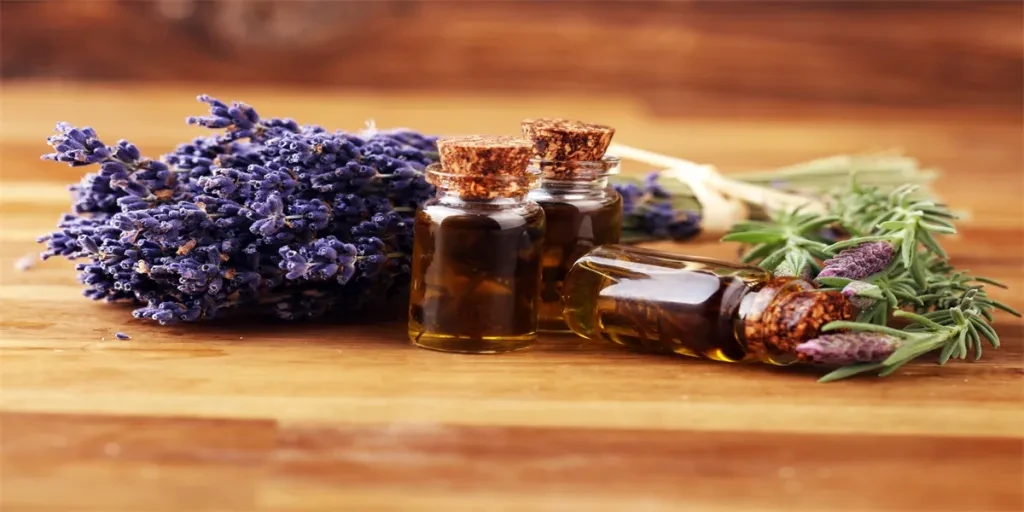
In conclusion, the herbal oil market is poised for significant growth, driven by the increasing demand for natural and organic beauty solutions. Innovations in formulations, the emergence of new brands, and a focus on sustainability are shaping the future of the market. Business buyers must prioritize quality, reliability, and cost-effectiveness when sourcing herbal oils to meet consumer expectations and drive market success.
